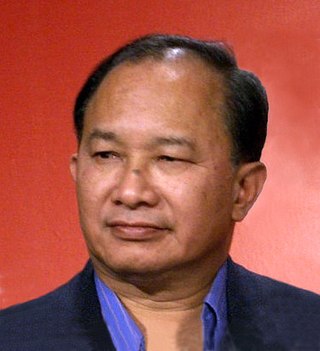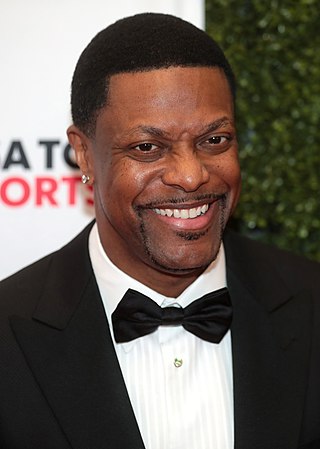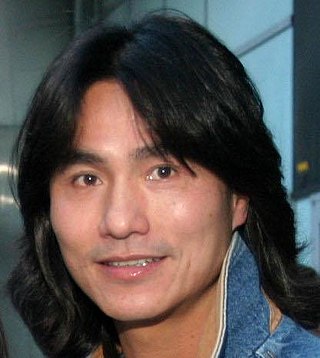
John Woo Yu-sen is a Hong Kong film director known as a highly influential figure in the action film genre. The recipient of various accolades, including a Hong Kong Film Award for Best Picture, Best Director, and Best Editing, as well as a Golden Horse Award, an Asia Pacific Screen Award and a Saturn Award, he is regarded as a pioneer of heroic bloodshed films and the gun fu genre in Hong Kong action cinema. He is known for his highly chaotic "bullet ballet" action sequences, stylized imagery, Mexican standoffs, frequent use of slow motion and allusions to wuxia, film noir and Western cinema.

Li Lianjie, better known by his stage name Jet Li, is a Chinese-born Singaporean martial artist, actor, and philanthropist. After three years of training with acclaimed wushu teacher Wu Bin, Li won his first national championship for the Beijing Wushu Team in 1974, winning the first of five men's national championships. After his retirement from the sport in 1979, he went on to win great acclaim as an actor, making his debut with the Chinese-Hong Kong martial arts film Shaolin Temple (1982), which instantly catapulted him to stardom in East Asia.

Martial arts films are a subgenre of action films that feature martial arts combat between characters. These combats are usually the films' primary appeal and entertainment value, and often are a method of storytelling and character expression and development. Martial arts are frequently featured in training scenes and other sequences in addition to fights. Martial arts films commonly include hand-to-hand combat along with other types of action, such as stuntwork, chases, and gunfights. Sub-genres of martial arts films include kung fu films, wuxia, karate films, and martial arts action comedy films, while related genres include gun fu, jidaigeki and samurai films.

The action film is a film genre that predominantly features chase sequences, fights, shootouts, explosions, and stunt work. The specifics of what constitutes an action film has been in scholarly debate since the 1980s. While some scholars such as David Bordwell suggested they were films that favor spectacle to storytelling, others such as Geoff King stated they allow the scenes of spectacle to be attuned to storytelling. Action films are often hybrid with other genres, mixing into various forms such as comedies, science fiction films, and horror films.

Jean-Claude Camille François Van Varenberg, known professionally as Jean-Claude Van Damme, is a Belgian martial artist and actor. Born and raised in Brussels, his father enrolled him in a Shotokan karate school at the age of ten, which led Van Damme to hold the rank of 2nd-dan black belt in karate, and compete in several karate and kickboxing competitions. As a teenager, he won the middleweight championship of the European Professional Karate Association in 1979 and the Mr. Belgium bodybuilding title in 1978. With the desire of becoming an actor in Hollywood, he moved to the United States in 1982, where he worked on several films, until he got his break as the lead in the martial arts film Bloodsport (1988).

Samuel "Sammo" Hung Kam-bo is a Hong Kong actor, martial artist, film producer and director, known for his work in martial arts films, Hong Kong action cinema, and as a fight choreographer for other actors such as Kim Tai-chung, Jackie Chan, Yuen Biao, and Yuen Wah.

Fang Shilong, known professionally as Jackie Chan, is a Hong Kong actor, director, writer, producer, martial artist, and stuntman. On-screen, he is known for his slapstick, acrobatic fighting style, comic timing, and innovative stunts, which he typically performs himself. Before entering the film industry, he was one of the Seven Little Fortunes from the China Drama Academy at the Peking Opera School, where he studied acrobatics, martial arts, and acting. In a film career spanning more than sixty years, he has appeared in over 150 domestic and international movies. Chan is regarded as one of the most iconic and influential martial artists in the history of cinema.

Christopher Tucker is an American stand-up comedian and actor. Tucker made his debut in 1992 as a stand-up performer on the HBO comedy series Def Comedy Jam, where he frequently appeared on the show during the 1990s. He made his feature film debut in House Party 3 in 1994 and gained greater recognition in Friday the following year. In 1997, he co-starred in the films The Fifth Element and Money Talks, and appeared in a supporting role in Quentin Tarantino's Jackie Brown. Tucker gained international fame for portraying Detective James Carter in the buddy cop action comedy film Rush Hour (1998), a role he reprised in two sequels.

Wesley Trent Snipes is an American actor. In a film career spanning more than thirty years, Snipes has appeared in a variety of genres, such as numerous thrillers, dramatic feature films, and comedies, though he is best known for his action films. He was nominated for the Independent Spirit Award for Best Supporting Male for his work in The Waterdance (1992) and won the Volpi Cup for Best Actor for his performance in the film One Night Stand (1997).
The following outline is provided as an overview of and topical guide to martial arts:

Tatchakorn Yeerum, better known internationally as Tony Jaa and in Thailand as Jaa Phanom, is a Thai martial artist, actor, action choreographer, stuntman, and director. Known for his explosive martial arts stunt work, Jaa broke out in 2003 with Ong-Bak: Muay Thai Warrior, which earned him international recognition and spawned two sequels.

Yeung Sze, better known as Bolo Yeung, is a Hong Kong former competitive bodybuilder, martial artist, and actor. Primarily known for playing villains in action and martial arts films, he is regarded as one of the most influential actors in martial arts cinema.
Hong Kong action cinema is the principal source of the Hong Kong film industry's global fame. Action films from Hong Kong have roots in Chinese and Hong Kong cultures including Chinese opera, storytelling and aesthetic traditions, which Hong Kong filmmakers combined with elements from Hollywood and Japanese cinema along with new action choreography and filmmaking techniques, to create a culturally distinctive form that went on to have wide transcultural appeal. In turn, Hollywood action films have been heavily influenced by Hong Kong genre conventions, from the 1970s onwards.
Sabotage is an act of destruction or interference intended to weaken an opponent.

Shou Wan-por, known professionally as Robin Shou, is a Hong Kong-American actor, martial artist and stuntman. Born in British Hong Kong but raised in Los Angeles, Shou entered the Hong Kong film industry as a stuntman in the late 1980s, before transitioning to acting. He went on to star in films such as City War (1988), Tiger Cage 2, Fatal Termination, and Bloody Mary Killer (1993). Shou made over 40 Hong Kong movies before breaking into Hollywood.

Michael Jai White is an American actor, director, and martial artist. Though he has appeared in a variety of genres, White is best known for his action and martial arts films. His first major starring role and breakout performance was in the 1995 HBO film Tyson as heavyweight boxer Mike Tyson. He went on to portray Al Simmons in the 1997 movie Spawn, making him the first African American to portray a major comic book superhero in a major motion picture. His work in Spawn earned him a nomination for the Blockbuster Entertainment Award for Best Male Newcomer. White went on to star opposite Jean-Claude Van Damme in Universal Soldier: The Return (1999) and in 2001, he starred opposite Steven Seagal in Exit Wounds.
Kung fu film is a subgenre of martial arts films and Hong Kong action cinema set in the contemporary period and featuring realistic martial arts. It lacks the fantasy elements seen in wuxia, a related martial arts genre that uses historical settings based on ancient China. Swordplay is also less common in kung-fu films than in wuxia and fighting is done through unarmed combat.

This is chronological list of action films split by decade. Often there may be considerable overlap particularly between action and other genres ; the lists should attempt to document films which are more closely related to action, even if they bend genres.

Scott Edward Adkins is an English actor and martial artist. He gained prominence with his villainous portrayal of the Russian prison fighter Yuri Boyka in the American martial arts film Undisputed II: Last Man Standing (2006), a role he reprised in its sequels Undisputed III: Redemption (2010), which won him an Action on Film Award for Breakout Action Star, and Boyka: Undisputed (2017), which won him a Jackie Chan Action Movie Award for Best Action Movie Actor.
The Iceman Cometh is a 1939 play by Eugene O'Neill.














